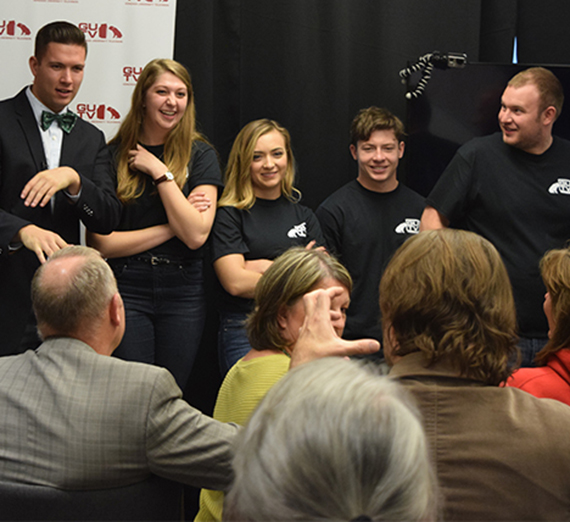Common Grounds - This is Not a Game

"The Price is Right.” “Jeopardy.” “Wheel of Fortune.” “Family Feud.” Americans have loved their TV game shows for decades. It’s no wonder that Dan Garrity, director of Gonzaga’s broadcast journalism program, dreamed up a game show format for the university’s recent International Conference on Hate.
What he really wanted to do, Garrity says, was to “prove that people on opposite sides of a divisive issue could willingly find common ground.”
And hence the show, “Common Ground,” was born. “The whole thing is in response to the ailing nature of dialogue in our country today,” Garrity says. “It doesn’t matter where you are politically. People just aren’t having civil conversations when they disagree. This is one way people can see we’re trying to do something about that.”
Garrity drew up the original plans for a game that would include both students and faculty or staff who were known to represent differing political views. In one game, each participant’s challenge
was to predict how the other teammate had already responded to a specific scenario. As he had hoped, contestants were often surprised by what they learned, and by discovering they had more in common than they assumed at the onset of the contest.
Garrity says, “I’m most excited about helping students prove to themselves how they can be part of the solution rather than preaching to and screaming at each other.”
Senior broadcast major Emily Jung accepted Garrity’s invitation to produce the show, which included three pre-produced blocks to be shown at GU’s Conference on Hate, and a fourth segment that unfolded live with conference attendees.
What resulted was a somewhat unexpected display of emotions. One audience member, choking back tears, said, “This … gives me hope.” Another shared, “I thought it was very
moving. We’ve all had families experience divisions they thought they couldn’t get beyond.”
Garrity believes that reaction is proof that the video experiment could have great impact. “It really shows that when we sit down to focus on what we agree on – first
– we learn we are not really as far apart as people sometimes believe.”
